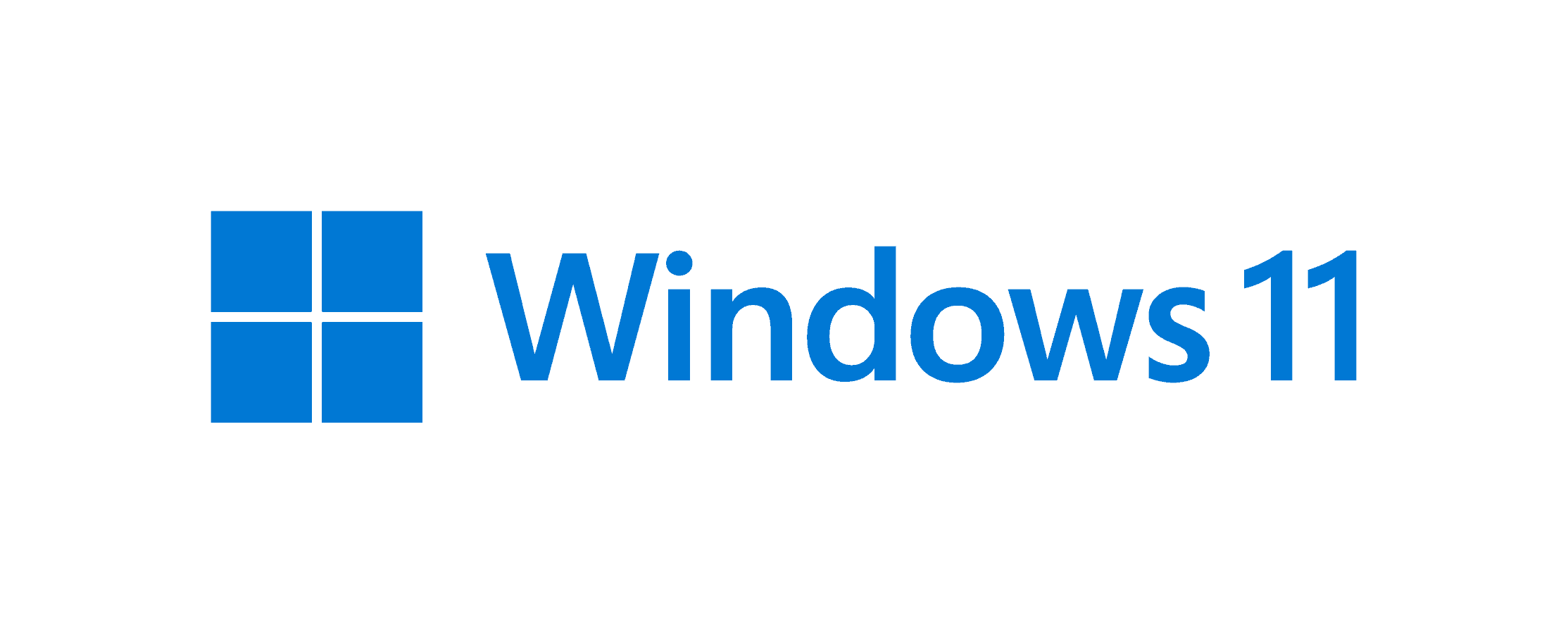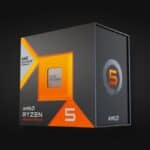When it comes to gaming, most players wonder if upgrading from Windows 11 Home to Windows 11 Pro offers any real benefit in terms of performance, compatibility, or features. The truth is that for the vast majority of gamers, Windows 11 Home is perfectly sufficient. However, there are a few key differences worth considering depending on your setup and use case.
Side-by-Side Comparison: Windows 11 Home vs Pro for Gamers
| Feature | Windows 11 Home | Windows 11 Pro |
|---|---|---|
| Gaming Performance | Identical to Pro | Identical to Home |
| DirectStorage Support | ✅ Yes | ✅ Yes |
| Auto HDR | ✅ Yes | ✅ Yes |
| Xbox Game Bar / Game Mode | ✅ Yes | ✅ Yes |
| Remote Desktop (host) | ❌ No | ✅ Yes |
| BitLocker Encryption | ❌ No | ✅ Yes |
| Memory Support | Up to 128 GB | Up to 2 TB |
| CPU Support | 1 CPU socket, 64 cores | 2 CPU sockets, 128 cores |
| Virtualization (Hyper-V) | ❌ No | ✅ Yes |
| Group Policy Management | ❌ No | ✅ Yes |
| Price | Cheaper (~$139 retail) | More expensive (~$199 retail) |

What Matters Most for Gaming?
✅ Performance
Gaming performance—FPS, latency, load times—is identical between Home and Pro. Both editions support all gaming technologies in Windows 11, including:
- DirectStorage for faster game load times on NVMe SSDs
- Auto HDR for enhanced visuals in compatible games
- Game Mode to prioritize CPU/GPU resources for games
✅ Compatibility
Every major game, platform (Steam, Epic Games, Xbox App), and anti-cheat system works just as well on Home as on Pro.
✅ Feature Parity for Gamers
- You still get Xbox Game Bar, Game Mode, DirectX 12 Ultimate, and Windows Update for Gaming Optimization on Home.
When Is Windows 11 Pro Worth It for Gamers?
You might consider Windows 11 Pro if:
- You stream gameplay remotely using Remote Desktop (as host)
- You want to use BitLocker to secure a portable gaming laptop
- You’re a power user or content creator who needs Hyper-V or Group Policy controls
- You plan to use your PC for development or virtual machines alongside gaming
- You’re running a workstation-style setup with dual CPUs or high RAM needs
Bottom Line
- Choose Windows 11 Home if you’re a casual or even competitive gamer and want to save money.
- Choose Windows 11 Pro if you need extra features for productivity, security, remote access, or virtualization on top of gaming.
For 99% of gamers, Windows 11 Home delivers everything needed for a top-tier gaming experience. The upgrade to Pro only makes sense if you’re blending professional workloads or advanced features with your gaming rig.
Key Takeaways
- Windows 11 Home and Pro offer nearly identical gaming performance with the same core gaming features.
- Windows 11 Pro includes additional business and security features at a higher price point that most gamers won’t utilize.
- Hardware compatibility is similar for both versions, though Pro supports more CPU cores which only benefits extremely high-end systems.
Comparing Windows 11 Home and Pro
Choosing the right version of Windows 11 can be confusing, especially if you’re a gamer looking for the best performance. Windows 11 Home and Windows 11 Pro both offer excellent gaming experiences, but there are some differences worth considering before making your decision.
For gaming usage, there is little difference in performance between Windows 11 Home and Windows 11 Pro. Both versions include the same gaming features, such as DirectX 12 Ultimate, Auto HDR, and the Xbox Game Bar. The Home edition supports systems with up to 64 CPU cores, while Pro can handle up to 128 cores – though this difference won’t affect most gaming setups.
Windows 11 Pro does include additional features like BitLocker encryption, Remote Desktop, and more business-focused tools. However, these extras come at a higher price point and don’t necessarily translate to better gaming performance. Most gamers will find that the more affordable Home version meets all their gaming needs without paying for unused professional features.
Windows 11 comes in different versions with varying features and capabilities. Home and Pro editions share many similarities but differ in several key areas that might affect gaming performance and overall user experience.
Core Functional Differences
Windows 11 Pro offers several advanced features not available in the Home edition. One major difference is memory support – Pro allows up to 2TB of RAM, while Home is limited to 128GB. For most gamers, this 128GB ceiling isn’t an issue since few gaming systems exceed this amount.
Pro includes several business-oriented security features absent from Home. Bitlocker encryption protects data by encrypting entire drives, making it harder for unauthorized users to access files. The Pro version also includes Hyper-V for creating virtual machines and Windows Sandbox for testing applications in a secure environment.
Remote Desktop is another Pro-exclusive feature that lets users access their PC from other devices. The Local Group Policy Editor in Pro provides more granular control over system settings and security policies.
Gaming-Specific Features
When it comes to gaming performance, Windows 11 Home and Pro versions are nearly identical. Both editions use the same core gaming technologies:
- DirectX for graphics rendering
- Game Mode for optimized performance
- Auto HDR for enhanced visuals
- DirectStorage for faster load times
Neither version holds a significant advantage for gaming tasks. The gaming engines, drivers, and performance optimizations work the same way in both editions.
Pro might offer minor advantages in specific scenarios. For instance, users with complex multi-device gaming setups might benefit from Remote Desktop. Streamers or content creators who need to isolate gaming applications could find Hyper-V virtualization useful.
Price Consideration and Value
Windows 11 Home is significantly more affordable than Pro, with a typical price difference of $50-100. For most gamers, Home provides better value since the gaming performance is essentially identical.
Pro’s additional cost is justified mainly for users who need its business features. The extra expense makes sense for:
- Users who require enhanced security through Bitlocker
- Those who need virtualization capabilities via Hyper-V
- Gamers who also use their PC for professional work
Home edition comes pre-installed on most gaming laptops and pre-built systems. Upgrading to Pro later is possible but usually costs more than purchasing Pro initially.
For pure gaming purposes, the extra features in Pro rarely justify the price premium unless specific non-gaming needs exist.
Gaming Performance and Enhancements
Both Windows 11 Home and Pro editions offer identical gaming capabilities with features designed to enhance gameplay. The core gaming technologies are present in both versions, meaning gamers won’t miss out on essential performance features regardless of which edition they choose.
DirectX 12 and DirectStorage Impact
DirectX 12 serves as the foundation for modern PC gaming on Windows 11, with both Home and Pro editions supporting this graphics API fully. This technology allows games to use your computer’s hardware more efficiently, resulting in smoother gameplay and better frame rates.
DirectStorage, another key gaming technology, is available in both Windows 11 versions. This feature dramatically speeds up loading times by allowing games to send data directly to your graphics card from NVMe SSDs, bypassing CPU bottlenecks. Games built with DirectStorage support can load assets much faster than traditional methods.
Neither Windows 11 Home nor Pro has an advantage here – both provide identical DirectX 12 and DirectStorage capabilities. For gamers focused purely on performance, the edition choice won’t impact these technologies.
AutoHDR and High Dynamic Range Support
Windows 11 introduced AutoHDR, a feature that automatically enhances compatible games with HDR effects, even if they weren’t originally designed for it. This technology is available in both Home and Pro editions, offering more vibrant colors and improved visual contrast.
To use AutoHDR effectively, you’ll need:
- An HDR-compatible monitor
- A graphics card that supports HDR
- Games that can benefit from the technology
The implementation of HDR is identical across both Windows 11 versions, with no performance difference between Home and Pro. This feature works with hundreds of DirectX 11 and DirectX 12 games automatically.
Game Pass Integration and the Xbox App
Both Windows 11 Home and Pro provide seamless integration with Xbox Game Pass and the Xbox app. This gives users access to a large library of games through a subscription service directly from their desktop.
The Xbox app comes pre-installed on both editions and offers:
- Game Pass library access: Browse and install hundreds of games
- Xbox network features: Connect with friends across platforms
- Cloud gaming capabilities: Stream games without downloading them (with Ultimate subscription)
Game Pass integration works identically on both Windows 11 versions. There are no premium gaming features exclusive to Windows 11 Pro that would enhance the Xbox experience or game performance.
Hardware Compatibility and Requirements
Both Windows 11 Home and Pro editions share the same foundational hardware requirements, which are significantly higher than previous Windows versions. These requirements ensure optimal performance for gaming and other intensive tasks, though some differences exist between the two versions.
Minimum System Specifications
Windows 11 requires a 64-bit processor with at least 1 GHz clock speed and 2 or more cores on a compatible processor. The system needs a minimum of 4 GB RAM and 64 GB storage space. For gaming, these base requirements are merely starting points.
Most modern games demand significantly more resources. Gamers should aim for at least 16 GB RAM and preferably an NVMe SSD for faster load times. The good news is that both Windows 11 Home and Pro support the latest DirectX 12 technology, which is crucial for modern gaming graphics.
The storage requirements are identical between editions, but gamers will want more than the minimum for game installations.
Advanced Security with TPM 2.0
One of the most discussed requirements for Windows 11 is the Trusted Platform Module (TPM) 2.0. This security chip is mandatory for both Home and Pro editions and provides hardware-level security protection.
Microsoft implemented this requirement to improve system security. TPM 2.0 helps protect against firmware attacks and enables features like BitLocker drive encryption (fully available in Pro version).
For gamers, TPM 2.0 doesn’t directly impact gaming performance, but it ensures a secure environment for online gaming and transactions. Most modern motherboards (post-2016) include TPM 2.0, though sometimes it requires activation in BIOS settings.
Impact of RAM and CPU on Gaming
While both Windows 11 editions support powerful hardware, Windows 11 Pro has higher RAM capacity limits—up to 2 TB compared to Home’s 128 GB. For most gamers, this difference is negligible since few gaming rigs exceed 64 GB of RAM.
CPU support is identical in both versions. Both editions fully utilize modern multi-core processors from Intel and AMD. The operating system’s scheduler improvements benefit gaming by better managing background tasks and prioritizing game processes.
For multi-tasking gamers who stream or run multiple applications alongside games, these improvements result in smoother gameplay. Windows 11’s enhanced core scheduling helps balance workloads across CPU cores more efficiently than Windows 10, which can reduce stuttering in CPU-intensive games.
Frequently Asked Questions
Gaming on Windows 11 raises many questions about which version to choose. Let’s address the most common concerns gamers have when deciding between Windows 11 Home and Pro editions.
What are the key differences between Windows 11 Home and Pro versions for gaming?
For gaming specifically, Windows 11 Home and Pro versions offer nearly identical performance. The main differences lie in business and advanced features rather than gaming capabilities.
Pro includes additional features like Group Policy Editor, BitLocker encryption, and Remote Desktop hosting. However, these features typically don’t impact gaming performance or functionality.
The core gaming experience, including DirectX support and hardware compatibility, remains the same across both versions.
Are there any gaming performance benefits in using Windows 11 Pro over Home?
There are no significant gaming performance benefits when choosing Windows 11 Pro over Home. Both versions use the same core operating system technology and gaming frameworks.
Benchmark tests consistently show equal frame rates and loading times between Home and Pro versions. The gaming engines, drivers, and DirectX implementation remain identical.
Gamers won’t notice any difference in speed, graphics quality, or overall gaming experience based solely on the Windows edition.
Can Windows 11 Home efficiently handle high-end gaming requirements?
Windows 11 Home fully supports high-end gaming hardware and software requirements. It handles the latest GPUs, multi-core CPUs, and gaming peripherals without limitations.
Home edition supports the same amount of RAM as Pro for most practical gaming setups. The 128GB RAM limit in Home exceeds what most gaming systems currently require.
Modern gaming titles run equally well on Windows 11 Home, with full access to DirectX 12 Ultimate and other advanced gaming technologies.
What features exclusive to Windows 11 Pro might benefit gamers?
Windows 11 Pro includes Hyper-V virtualization, which might benefit gamers who also develop games or run multiple operating systems. This allows testing games across different environments.
Pro’s BitLocker encryption provides additional security for gamers who also use their systems for sensitive work or store valuable gaming accounts.
The Remote Desktop hosting capability could help gamers who need to access their gaming PC from different locations or manage their system remotely.
Do gaming professionals typically prefer Windows 11 Pro or Home?
Most gaming enthusiasts and casual players choose Windows 11 Home since it provides all necessary gaming features at a lower cost. The price difference is hard to justify for gaming alone.
Professional gamers primarily focus on hardware specifications rather than Windows edition. Their choice typically depends on sponsorships or personal preference.
Game developers and streamers might opt for Pro edition when they need the additional business features alongside their gaming activities.
How does the choice between Windows 11 Home and Pro affect gaming-related software compatibility?
Gaming software compatibility remains consistent between Windows 11 Home and Pro. All major game launchers, including Steam, Epic Games Store, and Xbox app work identically on both versions.
Game development tools and popular gaming utilities function the same way across both editions. The core APIs and frameworks supporting games don’t change.
Specialized gaming software rarely requires Pro-exclusive features. Most gaming applications are designed to work with the more widely used Home edition by default.







